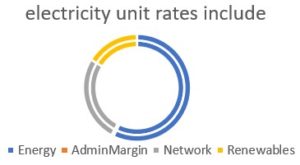Home > Your AF Energy contract FAQs
Your AF Energy contract FAQs answered
Perhaps you have questions about your energy supply contract through AF?
Here are our answers to your frequently asked questions.
Your question not answered? Send it to us. We’ll get it answered.
Reconciliations for the contract period ended 31st March 2023 will continue until you receive the final bill for consumption to 31st March 2023 – we would estimate for some Members’ billing quarters this could be June/July 2023.
Wholesale market prices have eased markedly over past few months to levels that are below that of the government cap that applied to end of March 23.
We have bought wholesale energy at these lower levels and secured the non-energy costs as competitively as possible for the duration of your contract (to 31st March ’24).
This year we have delivered price certainty for you with no further price changes / reconciliation invoices or credits for consumption billed. This will apply from 1st April 2023 to 31st March 2024 or 1st April to 30th September 2023 depending on the choice you made.
This is the outcome of the transmission charging review process which set out to ensure the costs of maintenance of the existing energy network and the expansion of the network are recovered fairly.
Historically a proportion of these costs were hidden within the unit rates and recovered from those using the system both as a user of electricity and a generator of electricity.
Generators no longer contribute to this and the Standing Charges now include a larger element of transmission and distribution costs based on size of your supply (meter type and agreed capacity).
The energy network has a finite capacity to transport electricity and rather than continually having to add costs to expand the network this new charging structure is looking to free up some capacity within the system and charge fairly for the reserved capacity that exists in the network.
Capacity agreements are like an insurance policy. They ensure that should you need to turn everything on at once the system has the capacity to supply all the electricity you need without interruption. You pay for reserving this facility even if you do not use this amount regularly.
As capacity agreements get amalgamated locally, if not actually being used this can result in inefficiencies within the network as non-used capacity is being built into network. If another user wants to add further supply or capacity this can result in additional network costs to expand the overall capacity which could be avoided if some users gave up/reduced their agreed capacity.
The new model therefore introduced bands where the charges are proportionately more for those users who have larger supplies and are reserving larger parts of the network.
Perhaps, yes. But subject to a review of how you currently use your energy and how you could adjust this in future.
Thinking about installing your own renewable energy generation can help offset peak demand times, thereby lower required capacity.
Review your maximum demand and determine whether you have the ability to free up / release any agreed capacity.
Could multiple connections be combined into a single supply and remove some standing charges?
Explore and bring in other energy efficiencies that could reduce the size of your supply requirements
Low usage, high capacity sites will be affected most so these should be prioritised for review.

Wholesale cost – 50-60%
Network costs – 20-25%
Renewable obligations – 15-20%
Admin & Margin <2%
AF are here to help you by providing information to help you make these important decisions.
Please contact your energy team to discuss further.
On-farm renewable energy generation must be part of farmers’ strategy.
It will reduce cost of power in the long term but it’s not going to make a difference in the next 6 months.
Farmers who are already generating renewable energy are better placed to cope with the current situation, especially if they are selling surplus energy back to the national grid. AF Members who have asked for our to get better Power Purchase Agreements have got themselves in the strongest position.
Planning may becomes less restrictive as legislators incentivise local generation. In the very long term, the UK’s access to wind, shale gas, coal and oil means that we can be self-sufficient.



